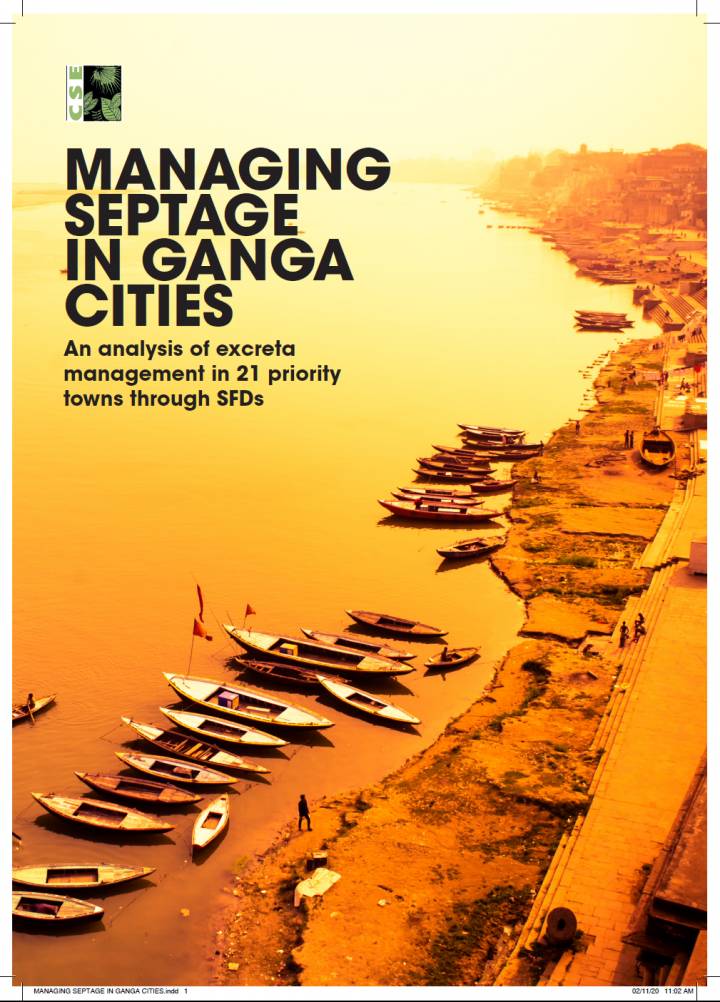Managing Septage in Ganga Cities An analysis of excreta management in 21 priority towns through SFDs Luthra, B., Gupta, E., (2020)
Namami Gange (a national mission for cleaning the Ganga River) is not just about physical cleaning of the river, it is about rejuvenating it and ensuring that it is ever flowing (Aviral) with clean (Nirmal) water. To achieve the same, a comprehensive approach is required which cuts across a lot of sectors. Human excreta (wastewater, faecal sludge, and supernatant) is one of the main causes for the deteriorating quality of water in the river. Managing these three streams of excreta is quintessential to achieve the dream of Nirmal and Aviral Ganga.
This report by CSE is based on the study of 21 priority towns, randomly selected, along the main stem of River Ganga. Shit Flow Diagrams (SFDs) are developed for each city to map the flow of excreta and understand the quality of service provision. The aim of the study is to find the gaps in excreta management and propose a way forward to fill the same to improve the health of the river and also the people residing in the basin cities.
In the initial part of the report, each stage of the service chain is looked at—containment, emptying, transport, and treatment—and an analysis of the same is presented based on the data collected for the 21 towns and cities. In the latter part of the report, the cities are clustered based on their population size and cluster SFDs are developed for three categories—Cluster 1 (cities with more than 5 lakh population), Cluster 2 (cities with population ranging from 1.2 to 5 lakh) and Cluster 3 (cities with population less than 1.2 lakh). Analysis of these clusters is shared in the report. Towards the end of the report an SFD for the basin has been attempted based on the data of 21 selected towns followed by the action plan and way forward.
Bibliographic information
Luthra, B., Gupta, E., (2020). Managing Septage in Ganga Cities An analysis of excreta management in 21 priority towns through SFDs Centre for Science and Environment
Filter / Tags
Politicians and local decision makersPractitionersCase studies in other formatsEnglishSFD General Library

